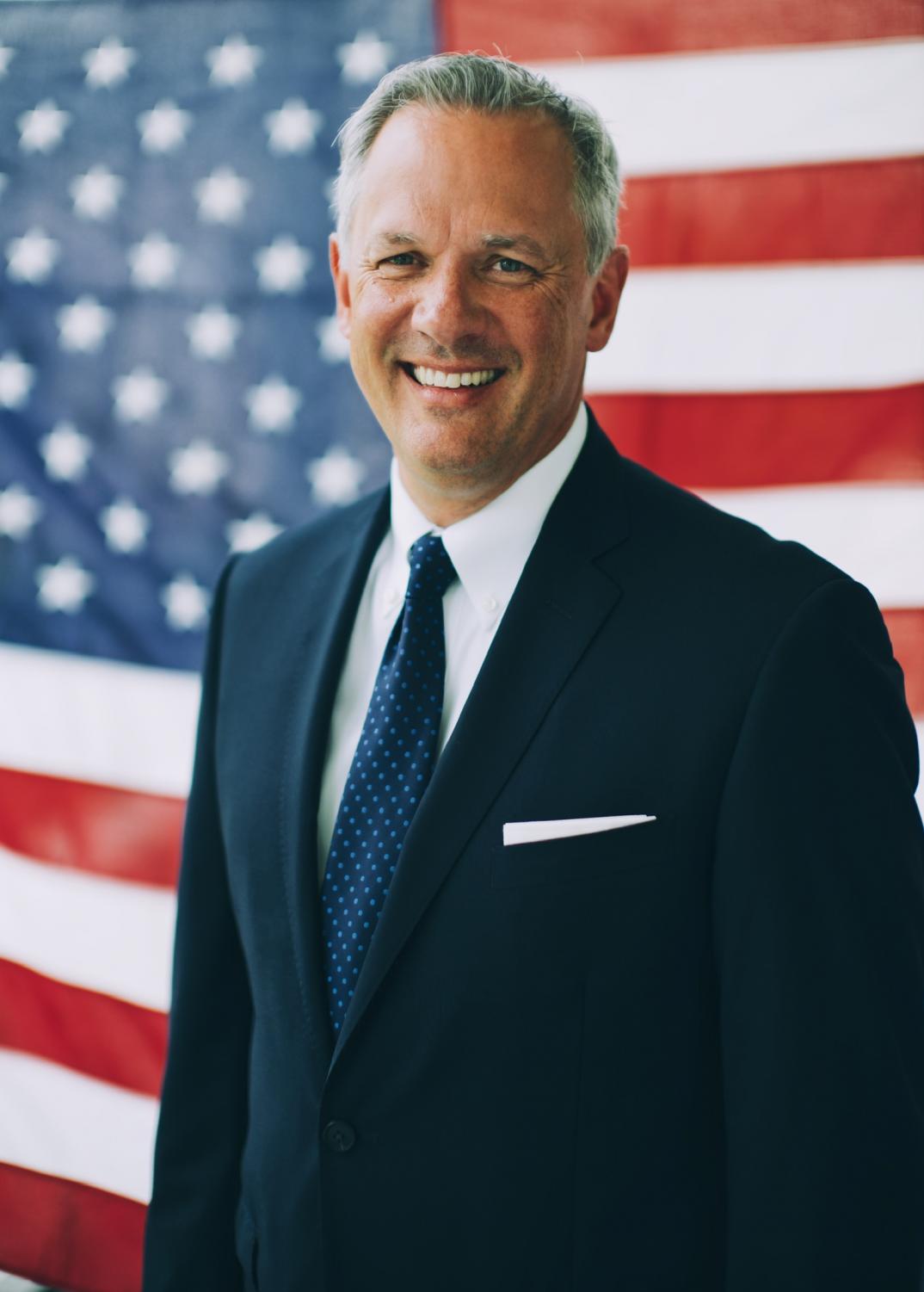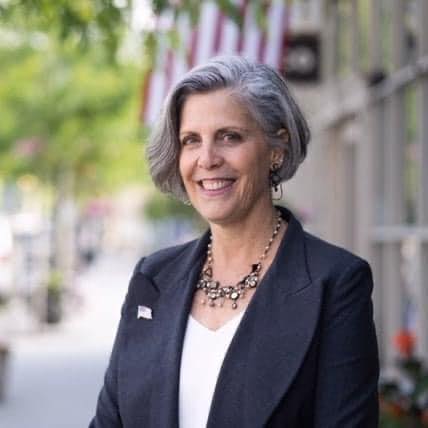Voter Guide: North Carolina state candidates
October 4, 2020
Governor
The following questions were sent to Dan Forest and Roy Cooper:
- What does an effective health care system look like to you?
- What plans do you have to boost North Carolina’s economy and address rising unemployment rates in the state?
- How do you plan to address inequities related to testing for the black community that is harshly affected by COVID-19?
- How do you plan to address unequal internet/broadband access across North Carolina?
- Many students are concerned about student debt, do you have plans to address increasing student debt in the UNC System during the pandemic?
Neither candidate responded so The Appalachian pulled information from their campaign or government websites.
Roy Cooper (D – Incumbent)

Economy:
As part of building up the economy, Cooper has proposed the Rural Investments Strengthening Economies (RISE) Program which aims to revitalize rural communities and encourage companies to locate or expand to more rural areas in the state. Cooper is also pushing for more broadband internet access, especially in rural areas.
Health care:
Cooper wants to close the health care gap by expanding access to Medicaid, which he claims would cover over 500,000 people in the state, and bring more than $4 billion and 40,000 new jobs into the state’s economy. Cooper also believes expanding access to health care would help combat the drug crisis.
COVID-19:
Cooper has maintained keeping the state closed during the coronavirus pandemic, only opening the economy in phases. Cooper has relied on state numbers to guide how the state can reopen. In a June press conference extending Phase 2, Cooper said, “We’re taking this pause right now to make sure we can level out our numbers before moving on. Everybody needs to get with this program to move our economy forward.”
Dan Forest (R)

Economy:
On his campaign website, Forest states “will rebuild our economy, retrain our workforce for the new economy, launch an aggressive apprenticeship initiative, recruit high-paying industries to North Carolina, and put our people back to work.” Forest also states that all parts of North Carolina have the infrastructure needed to help with job opportunities. “North Carolina needs a long-term vision to move forward, a plan to achieve this vision, and a new team of leaders to make it happen,” his website states.
Health care:
Forest says he will focus on better health care access by incentivizing doctors to practice in rural communities. His campaign website states Forest will “work with the General Assembly and the State Treasurer to ensure more price transparency so citizens know how much prescription drugs and vital health services cost.” The site also claims he will “fight” to get those left off the coverage gap created by the Affordable Care Act.
COVID-19
Forest has vowed to repeal the statewide mask mandate and reopen schools if he is elected governor. “It’s time to open the classrooms back up. It’s time to allow parents to decide whether their kids should be in the classroom,” Forest said in an ABC11 News article. “The Plan A-B-C concept laid out by the governor was a failed plan. All over the state, parents are fed up by the virtual learning that Gov. Cooper’s plan has forced on North Carolina.” Forest also filed a lawsuit — which he later dropped — over Cooper’s executive orders as he tried to force the state to reopen.
North Carolina State Senate District 45
The following questions were sent to Jeanne Supin and Deanna Ballard.
- Many students are concerned about student debt, do you have plans to address increasing student debt in the UNC System during the pandemic?
- How do you plan to address inequities related to testing for the black community that is harshly affected by COVID-19?
- How do you plan to address unequal internet/broadband access across North Carolina?
- What are your plans to promote environmental protection? Do you have any plans to promote environmental education?
Deanna Ballard (R – Incumbent)

- As a senate education co-chair, I’ll continue to work with UNC Board of Governors on college affordability as we have done in previous years whether we are in a pandemic or not. In 2019, we passed a bill to repeal the tuition surcharge imposed on students that take too long to graduate after finding the fee has the greatest impact on the populations we want to finish a degree — transfer students, older students, and student veterans. In addition, in recent years the General Assembly created the NC Promise Program, which guarantees in-state undergraduate students at Western Carolina, Elizabeth City State, and UNC-Pembroke pay just $500 per semester for tuition. Specific to the pandemic, close to 300 million Federal CARES dollars total were distributed to institutions as well as to the UNC System office to ease financial strain and disruption to education — $89.8 million direct to students related to food, housing, course materials, technology, etc.
- To address some local inequities, I specifically advocated for $10,000 be allocated to Watauga County for the purchase of a mobile broadband kit — this funding will allow testing sites in our rural and hard-to-reach areas to transmit coronavirus testing data to the local health department in real-time.
- We’ll likely continue to expand the GREAT Grant Program that was started in 2018 (S.L. 2018-5, Section 37.1). That year, the General Assembly appropriated $10 million (NR). The 2019 budget bill (HB 966) appropriated $15 million on a recurring basis starting in FY 19-20. Once that bill was vetoed, S.L. 2019-230/HB 387 was the mini budget that appropriated the $15 million in recurring money for the program.The General Assembly committed to that recurring amount through the 2028-2029 fiscal year. That bill also made some tweaks to the program: most notably, it expanded the GREAT program to tier two counties, beginning on July 1, 2020. The goal of the GREAT program is to significantly speed up the deployment of broadband by encouraging partnerships and competition between providers and cooperatives, and the program is seeing encouraging results in its first few years. The NCGA has committed more than $150 million to the GREAT program over the next decade. Already more than 10,000 households and 600 businesses, agricultural operations and community establishments including libraries, schools, and hospitals have new broadband access due to this grant program. The COVID-19 Recovery Act passed earlier this year provided an additional $9 million to the GREAT program to increase connections to broadband and increased funding for electronic devices to access remote learning opportunities.
- In 2018, I was named a Clean Energy Champion by the Chambers for Innovation and Clean Energy — I’ll continue to work with our colleagues in the General Assembly and leadership at the NC Collaboratory on environmental regulatory reforms as we have done in the past in protection of our state’s natural resources. Locally, I have been able to advocate and secure $1 million for Appalachian State University to reduce sediment loading in Payne Branch impacting the university’s water supply. I work in regular partnership with the NC Clean Water Management Trust Fund, Blue Ridge Conservancy and our Watauga RiverKeeper on issues relevant to our Watauga River, various greenways including the ongoing work with the Middle Fork Greenway project, as well as the creation of a new State Trail (Northern Peaks Trail) that will span from Boone to West Jefferson area.
Jeanne Supin (D)
Supin sent the following in response to the questions:

My daughter just started grad school at ASU. She loves her classes and she’s figuring out the online thing. But we know some students can’t afford internet and have to scramble around for hotspots. Some students have to choose between paying rent and buying food. Many students are racking up intense debt to pay for their education. And many are dealing with depression and anxiety. It’s all a huge struggle.
Yet worst of all? Students are told this is their own fault.
But that’s not true. When a student can’t find or afford broadband? That’s not bad luck; that’s bad policy. When a student has to take on overwhelming debt, that’s not “just how things are.” That’s bad policy. When students have to work two jobs to keep afloat while going to school and then fall apart when a pandemic throws them into unemployment? When they go hungry and can’t afford rent? When they feel anxious about their future ruined by economic destruction and climate change? Those are not circumstances out of our control. That’s profoundly bad policy.
I have spent my entire career working with government policy. For 30 years I have helped mental health and addictions clinics expand and improve desperately-needed services. I know first hand how government policy can either destroy or uplift lives. After decades in public service I know the difference between bad policy and good policy.
Students deserve real debt relief, free tuition, and a re-commitment to education across the state. Students deserve excellent healthcare and mental health and addiction treatment close to home and available to everyone regardless of income or the color of their skin. Students deserve a strong, green, just economy with generous wages and life-affirming career opportunities. Students deserve clean air, water and land and a healthy climate. They want our democracy to actually work. And most importantly, everyone wants politics to be about service, not power, and policy to reflect love, not hate.
My immediate policy goals will be universal access to affordable broadband; Medicaid expansion; a NC Green New Deal and energy democracy; and state contributions to federal student debt relief, free community college tuition, tuition freezes across state universities and fiscal allocations to ensure adequate faculty and staff pay. Because of my commitment to a progressive future I’m proud to have been supported by the App State and NC College Democrats and endorsed by the Sunrise Movement, the NC Association of Educators, NC Equality and the National Organization of Women.
North Carolina House of Representatives District 93
The following questions were sent to Ray Russell and Ray Picket:
-
- What does an effective health care system look like to you?
- What plans do you have to boost North Carolina’s economy and address rising unemployment rates in the state?
- How do you plan to address inequities related to testing for the black community that is harshly affected by COVID-19?
- How do you plan to address unequal internet/broadband access across North Carolina?
- Many students are concerned about student debt, do you have plans to address increasing student debt in the UNC System during the pandemic?
Ray Russel (D – Incumbent)

- First, the federal government provides the framework that each state must work within. The state legislature does not have the resources to design a health care system independent of that larger framework. The overriding principle is that every person should have access to access to affordable health coverage with a cap on out-of-pocket expenses. This is foundational for quality of life, economic development, worker productivity and improved job opportunities, achieving educational goals, and so much more. While designing the federal framework is not within the scope of a state legislature’s work, there is one simple step that North Carolina should adopt immediately: Expand Medicaid! The Affordable Care Act covers individuals and families at or below the poverty level via Medicaid. Above 138% of the poverty level, the ACA provides insurance subsidies to make sure people can be covered. To cover the gap between those income levels (the poverty level and 138% of the poverty level), the ACA offered states a plan called Medicaid Expansion. In North Carolina, passing Medicaid Expansion would draw down $4 billion per year in federal dollars (90% of the cost). NC Democrats offered a plan for the remaining 10% of the cost to be paid for with an assessment on hospitals and insurance companies. (Hospitals and insurance companies agreed to this plan since they have so much to gain from Medicaid Expansion.) Since 2013, North Carolina has lost $28 billion dollars that could have paid for healthcare for families in this income gap. Medicaid Expansion would cover about half of the roughly 1.2 million North Carolinians who do not have health insurance now. Additionally, Medicaid Expansion would create 37,000 new jobs and increase business activity by $12 billion and roughly $600 million in new state and local government revenue. Rural hospitals are struggling financially across the state and would stand to benefit most. I co-sponsored two bills for Medicaid Expansion; Republicans have blocked these bills every year since 2013. To date, 39 states have expanded Medicaid including Republican-dominated states such as Utah, Montana, Indiana, Louisiana, and Arkansas. Expanding Medicaid is a moral and economic imperative for North Carolina.Beyond Medicaid Expansion, mental health resources across North Carolina have been defunded by the Republican majority during the past decade. We are seeing the negative effects of these bad decisions in our schools, families, and with implications for law enforcement and the court system. We must focus more resources on mental health.While so much more could be said, I’ll mention just one more item… Integrated health centers need to become the norm across North Carolina. A health provider should be able to refer a patient to healthcare, mental health, or dental services under the same roof. This will go a far in creating healthier families and communities.
- Here is a list of items that we can do (or should have done) to boost North Carolina’s economy (and unemployment) now and for the long-term:
- Expand Medicaid. (See the benefits listed in the previous question.)
- We should have used CARES Act money to help businesses most impacted by COVID-19 — gyms, amusement parks, bars and others.
- We should pass a bond referendum for large infrastructure projects (including the renovation of Wey Hall at App State). Right now, North Carolina has $8 billion in unmet K-12 construction and renovation needs. Municipalities are struggling to pay for water and sewer projects. North Carolina has the capacity for additional bond projects. Two bipartisan bills passed the NC House in the (past two years); however, these bills were blocked by the NC Senate. While credit is so cheap and jobs are needed, passing these bonds make great economic sense.
- We should stop the 10-year decline in education funding in K-12, community colleges, and universities. Economic growth requires an educated workforce. Companies of all types struggle to find the skilled employees they need to prosper. That keeps existing business from growing and discourages others from relocating here.
- Finally, we need to support workers by encouraging livable wages, paid family/sick leave, equal pay for equal work, and make sure working families have access to affordable child care.
- Regarding the COVID-19 pandemic, we must prioritize health risks, and only then re-engage in economic activity that pose potential health risks.
- It’s clear that existing inequities in access to healthcare and economic status produce inequities for Black and brown communities. Governor Cooper and Dr. Mandy Cohen, Secretary of DHHS, have worked hard to address these inequities. Here are some initiatives they pursued and need to continue: 1) emphasized hiring public health personnel (especially those who do COVID-19 tracing) who are members of minority communities and Spanish speakers, 2) directed funding for testing and other services toward minority communities, 3) focused policies and procedures for protecting construction and farm workers, 4) focused education and advocacy efforts for minority communities so individuals can be better informed about how to avoid high-risk activities, and 5) addressed the current health needs of minority communities, particularly maintaining good nutrition and health maintenance activities.
- I was a primary sponsor for the most aggressive broadband expansion bill ever proposed in North Carolina. This bill would have:
- Established a $5 million Homework Grants pilot project;
- Invested $85 million in the Growing Rural Economies with Access to Technology (GREAT) program;
- Expanded health benefit coverage of telehealth services;
- Allowed local governments more authority to expand broadband to their citizens.
I co-sponsored and voted for bills providing grant money for companies to expand broadband into unserved areas. Currently, North Carolina has $32 million in competitive grant money for expansion.I also co-sponsored a bill giving rural electric cooperatives more flexibility to partner with broadband companies in expanding high-speed internet into rural areas.
- The Federal CARES Act directed $165 million directly to universities, and half of that had to go directly to student assistance. Additionally, tens of millions in general CARES Act money went to universities from North Carolina’s share. I proposed a bill to provide relief to students and private landlords in the event that universities had to close campuses this fall.While COVID has our immediate attention, the decade-long trend for state funding of higher education is disturbing. Make no mistake about it, Republicans have reduced state support for universities, and in turn raised tuition rates across most state universities, including Appalachian State. At App State, state funding has been cut 24% in the past decade. During the same period, tuition at North Carolina schools is up 44.5%. It’s no wonder that student debt is soaring. One half of incoming students at App State need loans to defray costs. The average loan is now over $5600 per student. It’s unfathomable that access to higher education became more difficult at a time when the country was experiencing the longest economic expansion in history. Meanwhile, faculty and staff at App State have not received a raise in three years. The State policy-makers need to carefully examine growing overhead and administrative costs, as well as costs that are not directly associated with academic programs. We must refocus on our core mission and focus resources there.
Ray Pickett (R)
Provided bio: My name is Ray Pickett. I am a long-time resident of Watauga County and love calling the High Country home. My wife and I have owned a small business in Blowing Rock for 20 years. I have served on Blowing Rock’s Town council and Planning Board. I am also actively involved with local nonprofits.

- My view of an effective health care system is one that provides choices. People should be able to choose what works best for them, not a one size fits all. I also believe that those choices should be more affordable and one way to lower cost is more competition in health care.
- The economy in North Carolina was doing very well before the pandemic, business was growing and unemployment was low. The pandemic slows everything down, but it is recovering. We need to open up the economy and we can do this safely. With business opening back up unemployment will go down. We need to continue to offer low-interest loans for those places that need it to get them through until business picks up.
- The first step would be to make sure our local health departments have the funding that they need. Second, we need to encourage people to get tested if they feel they have been in contact with an infected person. There have been reports that turnout at many testing sites has been low.
- I do not have a specific plan in place to get broadband to everyone in North Carolina, it will be a challenge. We will have to work closely with the carriers in the state to get this accomplished. This is something that will not happen overnight.
- This is a tough question, with some tough answers. College is very expensive and we need to look at why. Also anyone planning to go to college needs to look very close at return on investment. When borrowing money for anything one needs to always think about how it will be paid back. I know that this is not what some want to hear, but we can not snap our fingers and make this go away.















souad • Oct 8, 2020 at 4:40 am
Rural development and economy